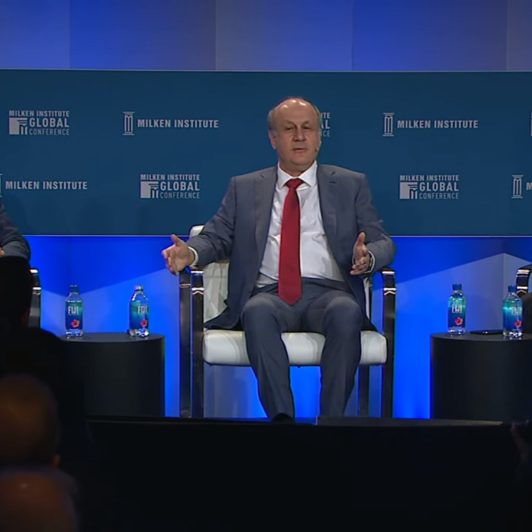Two Sigma Co-founder and Co-chairman David Siegel recently spoke with Devin Banerjee, editor of LinkedIn’s Human Capital newsletter. In a wide-ranging conversation, David shared his views on applying scientific methods to the financial domain, how innovation is changing the nature of work, and what workers can do to thrive in an age of rapid technological change.
Humans in the loop
As in other data-rich industries, algorithmic and scientific approaches have become increasingly prevalent in the world of finance, Siegel notes. As the amount of data in the world has exploded, and as Moore’s Law and distributed computing have improved our ability to work with so much information, analytical techniques like machine learning have become very powerful.
Still, many types of problems don’t quite lend themselves to purely algorithmic solutions. “Finance, like many fields, is going to be sort of a man-machine partnership,” predicts Siegel. “I think of technology as being in partnership with humans, rather than to replace humans.”
At the same time, automation does continue to put pressure on workers–especially when companies see it as a more efficient alternative to human employees. Of course, not every task should or even can be automated. “So, I think we’re in a transition period,” says Siegel. “While it will include a lot of additional automation, it’s a great opportunity to rethink what is the best way to use us, humans.”
The value of continuous learning
In an age of exponential growth for technological innovation, many workers find themselves in an environment for which they are inadequately prepared, Siegel notes. “The skills and education that you have depreciate very, very quickly. That gives a bias to people wanting newly trained or newly educated people who have more up-to-date skills.”
While some workers embrace change throughout their careers and effectively upgrade their skills, many are not in a position to do so, he adds, especially those whose jobs don’t provide time for learning new skills. Ultimately, he says, it will take a concerted effort by educators, employers, philanthropic organizations and governments to effect change.
Noting that many of the so-called “future-proof” jobs of the past have disappeared (think: keypunch operator), Siegel’s advice is “to focus on your skills, and to make sure that you’re flexible, that you can adapt, that you don’t need to essentially bet your whole future on being one thing. Because we’ll all probably get it wrong.”
Read the full interview, including Siegel’s thoughts on machine learning, algorithmic bias, and public-interest tech, here.






